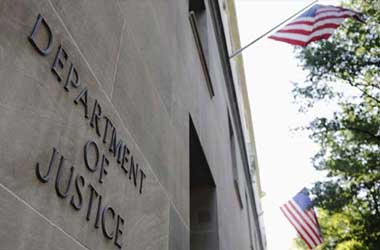 Summary:
Summary:
- States want the DOJ to tackle offshore sports betting and casinos.
- The DOJ says it is investigating the matter.
- Charges will reportedly be made when violations are substantiated.
On Tuesday, the Nevada Gaming Control Board publicized a letter from the Department of Justice in response to several states’ requests to fight illegal offshore casinos and sports betting.
States believe the federal government is doing nothing to stop illegal gambling operations. The DOJ says it is actively investigating and will bring charges when necessary.
Response to April Letter
In April, a group of states contacted the DOJ to have the federal agency prioritize the fight against illegal gambling. These states offer legal sports betting and online casino games, and they face competition from providers not legally bound by state or federal laws.
In a response letter, the DOJ says it is investigating the matter, and when violations are there, they will press charges. The letter stated that the group takes illegal gambling seriously and will continue investigating and prosecuting.
U.S. Department of Justice correspondence responds to request by state gaming regulators regarding illegal offshore wagering. The Nevada Gaming Control Board appreciates the U.S. DOJ addressing perils of illegal, offshore sportsbooks and online casinos. pic.twitter.com/AoIhXVE0hj
— Nevada Gaming Control Board (@NevadaGCB) August 29, 2023
The FBI is reportedly working to create and maintain strong partnerships with public and private entities to fight illegal gambling. The department understands the negative effects of illegal gaming on individuals and communities.
The department plans to continue using all available tools to help detect, investigate, and prosecute illegal activity.
Understanding the Effect of Illegal Gambling
Late last year, the American Gambling Association provided a report on illegal gambling, estimating that the market earns around $511 billion annually. This removes over $13 billion in tax payments from states with a legal market. Around $44 billion in revenues are also lost.
Most players don’t know or understand how the licensing process works. For a site to legally operate, it must receive licensing from state regulators. With offshore sites, they are licensed in other countries and do not adhere to local laws, so they are not subject to fees or taxes, which causes states to lose funds.
Colorado, Illinois, Louisiana, Michigan, Mississippi, New Jersey and Nevada were part of the group that sent the initial letter to the Department of Justice. The states want to see the Department act against the illegal operators so they no longer lose out on revenues and taxes.
The states pointed out the negatives of illegal operations in the letter, including the lack of responsible gambling programs, age-verification requirements, money laundering controls, fair payouts, and lost taxes.
The DOJ says it is investigating, so it will be interesting to see what measures are taken to stop the activity from taking place. Offshore operators are sure to fight any action and will try to stay afloat in any way possible.

